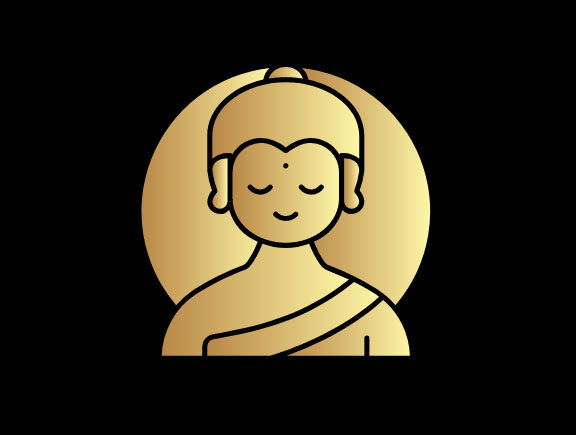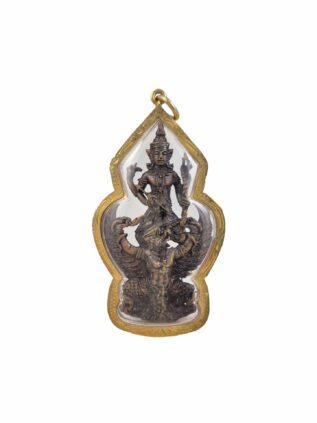Phra Narai
Phra Narai, known as the Thai representation of the Hindu god Vishnu, is a significant figure in Thai spirituality and culture. Revered as the preserver of balance and protector of the universe, Phra Narai embodies strength, justice, and divine authority. His presence in Thai traditions reflects the deep influence of Hinduism on the region’s spiritual and cultural heritage.
In Hindu mythology, Vishnu is part of the Trimurti, alongside Brahma (the creator) and Shiva (the destroyer). As the preserver, Vishnu restores cosmic order during times of chaos, often through his incarnations, or avatars, such as Rama and Krishna. In Thailand, Phra Narai’s role as a divine protector is closely tied to kingship and the concept of righteous rule. Thai kings, especially during the Ayutthaya and early Rattanakosin periods, were believed to be earthly manifestations or representatives of Phra Narai, cementing the deity’s association with leadership and divine justice.
Phra Narai is often depicted as a regal figure with four arms, holding items symbolizing his powers: a conch (shankha) for summoning divine energy, a discus (chakra) to destroy evil, a mace (gada) for strength, and a lotus flower for purity and creation. He is frequently shown riding Garuda, his mythical bird-like vehicle, symbolizing power and loyalty. Shrines and statues dedicated to Phra Narai can be found throughout Thailand, including the famous palace Phra Narai Ratchaniwet in Lopburi, built by King Narai the Great.
The stories of Phra Narai’s avatars, particularly Rama from the Ramakien (the Thai version of the Ramayana), are deeply woven into Thai literature, art, and classical dance. These narratives celebrate his virtues and his role in maintaining balance and defeating evil, resonating with Thai cultural values.
Today, Phra Narai remains a symbol of divine protection, justice, and cosmic harmony, reflecting the enduring impact of Hindu-Buddhist syncretism on Thai culture. Through his veneration, devotees seek balance, strength, and guidance in their personal and spiritual lives.
Showing the single result
Showing the single result

